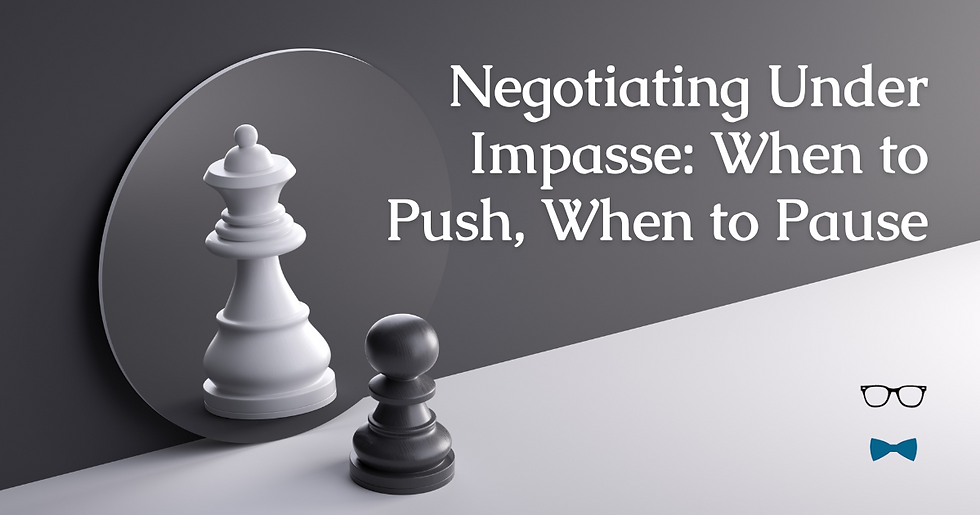Mediation in Chapter 11 Bankruptcy: A Tool for Crafting a Confirmable Plan
- Cooper Shattuck

- Apr 30
- 2 min read
Chapter 11 bankruptcy is all about negotiation—negotiating with creditors, stakeholders, and even sometimes with the past. But these negotiations often happen under pressure, in silos, or at the courthouse steps. When they break down, the result is costly litigation, delays, and plans that face a barrage of objections. That’s where mediation can offer a smarter path forward.

Used strategically, mediation can be the engine behind a Chapter 11 reorganization plan that actually gets confirmed—by building consensus before the plan is even filed.
Why Mediate in Chapter 11?
Chapter 11 requires plan confirmation through a structured process that evaluates feasibility, good faith, and compliance with statutory requirements. But none of that matters if the plan doesn’t have stakeholder buy-in.
Objections to confirmation often boil down to one simple truth: someone doesn’t feel heard or satisfied. Mediation addresses that head-on. It brings parties to the table early, allows for confidential discussions, and creates space for creative, non-zero-sum solutions.
Mediation is particularly well-suited to Chapter 11 cases with:
Numerous creditor classes with competing interests
Significant unsecured claims that will be impaired
Dissenting creditors whose objections could derail confirmation
Complex capital structures or ownership disputes
Ongoing business operations that need stability during reorganization
From Objections to Consensus
A well-structured mediation can do what disclosure statements and term sheets often can’t—surface underlying concerns, reframe priorities, and broker solutions that preserve value for all. In many cases, mediation helps parties move past zero-sum thinking and toward mutually acceptable trade-offs: timing of payments, treatment of secured versus unsecured claims, governance of the reorganized entity, or future equity participation.
And importantly, if mediation is successful, the debtor can file a plan already supported by the key stakeholders—making confirmation smoother and far less adversarial.
The Role of Blind Negotiations
Even in a setting where everyone will ultimately see who’s getting what, blind negotiations during mediation can still serve a purpose.
When competing creditor groups or equity holders are wary of each other, blind proposals allow the mediator to build a structure without premature posturing or political friction. It’s not about keeping secrets—it’s about creating a safe zone for candid negotiation, where positions can be tested without immediate judgment.
Later, once the pieces fit together and the outlines of a confirmable plan take shape, transparency returns. But by that point, parties have usually bought into the overall structure—and objections are less likely to materialize.
Designing a Plan with Fewer Landmines
Using mediation in Chapter 11 bankruptcy cases early in the process—before a plan is filed—lets parties do the hard work of consensus-building in a private, non-litigious environment. That doesn't just lead to fewer objections. It also creates a plan with broader support, better buy-in, and a higher likelihood of long-term success for the reorganized entity.
In short, mediation isn’t just a tool to resolve objections and litigation—it can actually prevent them.






Comments